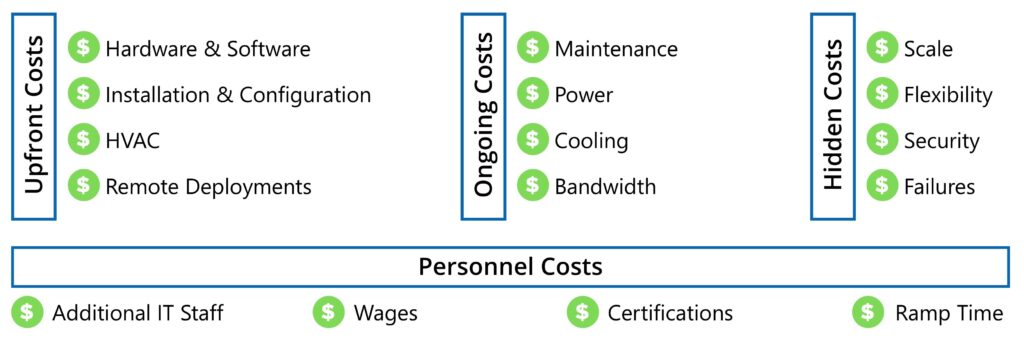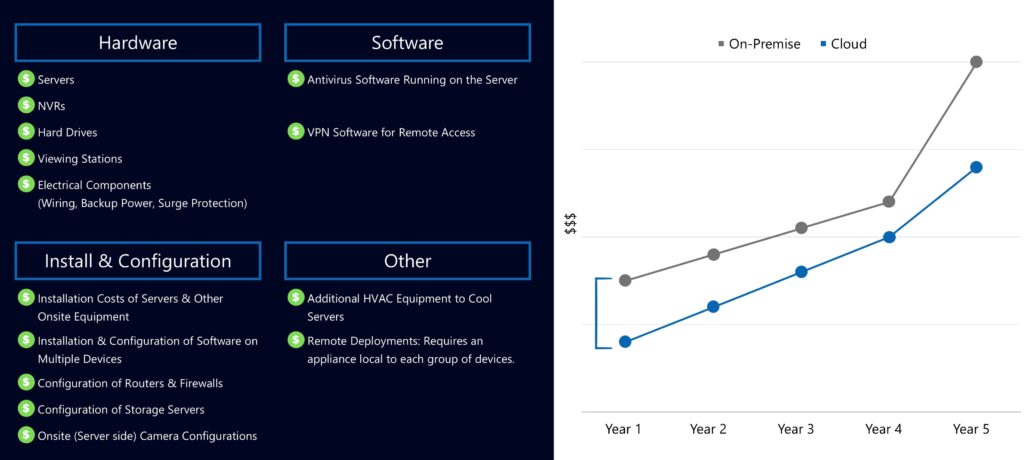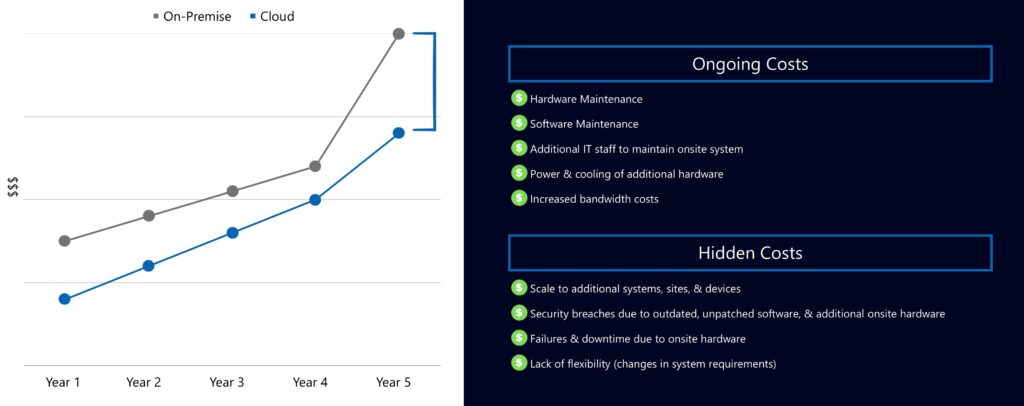Cloud vs On-Premise Solution
Total Cost of Ownership Explored
Cost Factors for an On-premise Solution
When evaluating the total cost of ownership of a solution, it’s essential to consider various factors. These extend beyond the initial purchase price to include ongoing expenses, hidden costs (the costs that are unexpected), and personnel expenses, which are encompassed within the other three categories.

Upfront Costs
Upfront costs can exceed 2x for an on-premise solution
On-premise solutions require more hardware and software, leading to higher initial capital (upfront) expenses. Components like servers, NVRs, hard drives, antivirus software, and VPNs are required for these setups but are not needed with the YourSixOS solution. Additionally, these extra items incur installation and configuration costs. More hardware translates to greater expenses—and potentially more complications (hidden costs).

Ongoing & Hidden Costs
Ongoing & Hidden Costs can exceed 2x the original cost for an on-premise solution.
On-premise solutions do incur ongoing costs! Many people mistakenly believe that opting for on-premise means they avoid operational expenses that come with cloud solutions. It’s crucial for both integrators and customers to assess not only the known ongoing costs of an on-premise solution but also the hidden expenses. With more software and hardware to manage, costs can add up. Additionally, having more hardware increases the risk of failures and replacements. Consider the following questions:
-
- If I need to add more sites or devices, will I need to purchase additional servers?
- If I want to expand my storage capacity, will I need to buy more hard drives?
- Can I afford downtime if any hardware fails?
- Am I prepared for a potential security breach due to vulnerabilities associated with increased hardware?
- What are the ongoing expenses for power, cooling, and bandwidth?

